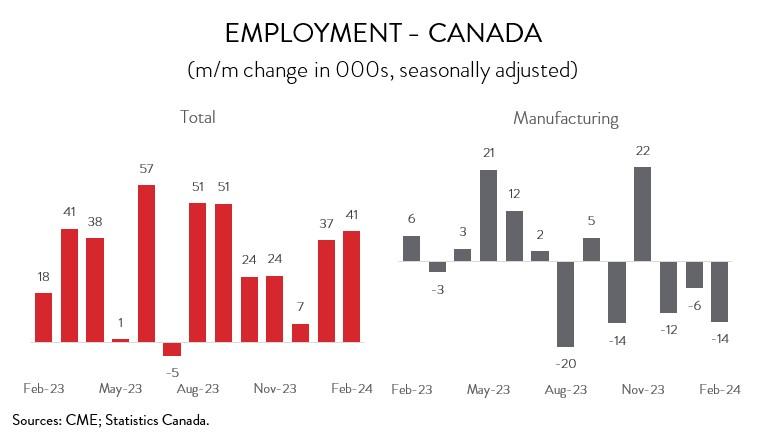Exploring the Canadian Job Landscape: Opportunities Await
As the sun rises over the vast expanse of canada, it casts light on a diverse tapestry of employment opportunities waiting to be discovered. With its rich cultural mosaic and thriving economy, Canada presents a unique job market that invites both residents and newcomers alike to embark on new career journeys. From the bustling streets of Toronto to the picturesque landscapes of British Columbia, the nation offers a plethora of industries, skill sets, and growth potential. In this article, we will delve into the evolving nature of work in Canada, highlighting key sectors, emerging trends, and essential insights for those seeking to navigate their way through the Great white North’s dynamic job scene. Whether you’re a seasoned professional, a recent graduate, or someone looking to start anew, the canadian job market holds a wealth of possibilities tailored just for you.
Table of Contents
- Exploring Diverse Career opportunities Across Canada
- Navigating the Canadian Job Market: Trends and Insights
- Essential Skills and Qualifications for Success in Canada
- Strategies for Job Seekers: Networking and Application Tips
- Q&A
- Key Takeaways
exploring Diverse Career opportunities Across Canada
Canada’s job market is a mosaic of opportunities, characterized by its rich cultural diversity and economic dynamism. From technology to healthcare,there are vibrant sectors that cater to a wide array of skills and interests.Here are some notable fields where you can find rewarding positions:
- Data Technology: With the rise of tech giants and startups alike, IT specialists, data analysts, and software developers are highly sought after.
- Healthcare: Nurses, pharmacists, and medical practitioners are in constant demand, driven by an aging population and ongoing public health initiatives.
- Construction and Trades: Skilled tradespeople such as electricians, plumbers, and carpenters are critical to supporting the country’s infrastructure growth.
- Finance: Accountants,financial analysts,and investment advisors remain essential for both individuals and corporations navigating the complex financial landscape.
Moreover, Canada embraces innovation, making room for emerging career paths in sustainability, remote work solutions, and digital marketing. Explore the possibilities in these booming industries:
| Emerging Industries | Key Roles |
|---|---|
| Renewable Energy | Environmental Engineers, Renewable Energy Technicians |
| Digital Marketing | SEO Specialists, Content Creators |
| Artificial Intelligence | Machine Learning Engineers, AI Researchers |
| E-commerce | Supply Chain Managers, E-commerce Analysts |

Navigating the Canadian Job Market: Trends and Insights
The Canadian job market is undergoing significant conversion, driven by technological advancements and evolving industry needs. As remote work continues to solidify its presence, many employers are seeking talent without geographical constraints. Key trends to watch include:
- Increased demand for tech skills: Proficiency in areas like artificial intelligence,cybersecurity,and data analysis is becoming critical across all sectors.
- Rise of gig economy roles: More individuals are pursuing freelance or contract work, offering versatility and diverse experiences.
- Focus on diversity and inclusion: Companies are actively seeking to create equitable workplaces, prioritizing diverse hiring practices.
Moreover, certain provinces are emerging as hotspots for job seekers. For instance, British Columbia, with its thriving tech scene, and Ontario, known for its financial services, are leading the way. Below is a comparative table showcasing job growth projections in various provinces:
| Province | Projected Job Growth (2023-2025) |
|---|---|
| British Columbia | 4.5% |
| Ontario | 3.8% |
| Alberta | 3.2% |
| Quebec | 2.9% |
Understanding these dynamics can empower job seekers to navigate their career paths more effectively, positioning them in alignment with market demands and opportunities.

Essential Skills and Qualifications for Success in Canada
To thrive in Canada’s competitive job market, it’s essential to possess a blend of technical and soft skills that can cater to the evolving demands of various industries. Communication skills play a crucial role, as they ensure effective collaboration across diverse teams and help in building professional relationships.Technical proficiency, particularly in areas such as IT, engineering, or healthcare, can substantially enhance employability. Moreover, having a growth mindset and being adaptable to new technologies or methodologies can set candidates apart. Here’s a concise list of pivotal skills that employers prioritize:
- Leadership Abilities
- Cultural Awareness
- Problem-Solving Skills
- Time Management
In addition to practical skills, qualifications such as certifications and relevant educational degrees greatly influence hiring decisions.Understanding the educational landscape,including the recognition of foreign degrees,can provide a clearer pathway to employment in Canada. Employers frequently enough look for qualifications from reputable institutions, along with tailored experiences that reflect the candidate’s ability to contribute to the local economy. Below is a simple table illustrating some common qualifications and their respective industries:
| Qualification | Industry |
|---|---|
| Project Management Professional (PMP) | Construction, IT |
| Certified Public Accountant (CPA) | Finance |
| Registered Nurse (RN) | Healthcare |
| Software Engineering Degree | Technology |

Strategies for Job Seekers: Networking and Application Tips
Networking is a powerful tool for job seekers aiming to break into the Canadian job market. One effective strategy is to attend industry-related events, workshops, and seminars, where you can connect with professionals in your desired field. Join online platforms such as LinkedIn to expand your network further. Engage actively in discussions, share insights, and seek informational interviews with industry leaders. This not only increases your visibility but also builds valuable relationships that coudl lead to job opportunities. Don’t underestimate the importance of following up with new connections; a quick thank you email can leave a lasting impression and open doors.
When applying for jobs, tailoring your resume and cover letter to each position is crucial. Use specific keywords from the job description to highlight your relevant experience and skills. Utilize a table to present your qualifications effectively,showcasing how they align with the job requirements:
| Job Requirement | Your Qualification |
|---|---|
| Minimum 3 years of experience in digital marketing | 4 years of experience managing online campaigns |
| Proficiency in SEO and analytics tools | Certified in google Analytics and SEO strategies |
| Strong communication and teamwork skills | Led cross-functional projects for successful launches |
Additionally,consider reaching out directly to recruiters or hiring managers with a brief message expressing your interest in their institution. Stay organized by tracking your applications and following up with employers after submitting your materials. This proactive approach can demonstrate your enthusiasm and commitment, setting you apart from other candidates. Each application is an prospect; treat it in this very way, and let your passion and professionalism shine through.
Q&A
Q&A: Exploring jobs in Canada
Q1: What are some of the most in-demand job sectors in Canada right now?
A1: Canada’s job market is diverse and constantly evolving. As of 2023, sectors like technology, healthcare, and skilled trades are particularly in demand. The rise of remote work has also fueled opportunities in tech-related fields, such as software progress and data analysis. Additionally, a growing aging population has spurred demand for healthcare professionals, making roles like nursing and personal support more critical than ever.
Q2: How does the Canadian job market differ from that of other countries?
A2: Canada’s job market is shaped by its unique cultural and economic landscape. With a strong emphasis on diversity and inclusion, Canadian workplaces frequently enough prioritize multiculturalism, which can create a more inclusive environment compared to other countries. Moreover, Canada offers a robust social safety net, affecting job benefits and employee rights. However, like many countries, the job market can vary significantly between urban and rural areas, with major cities often providing more opportunities.
Q3: What qualifications do I need to work in Canada as a newcomer?
A3: The qualifications required to work in Canada can vary based on the job sector. Many positions, especially in healthcare and engineering, require specific certifications or degrees from accredited institutions. For newcomers, it’s important to have your qualifications assessed against Canadian standards. Organizations like the Canadian Information centre for International credentials (CICIC) can help you navigate this process, ensuring your skills and qualifications are recognized.
Q4: Are there resources available to help job seekers in Canada?
A4: Absolutely! Canada offers a variety of resources for job seekers. Websites like Job Bank, Indeed, and LinkedIn provide job listings and networking opportunities. Additionally, local employment agencies and community organizations often offer workshops, resume writing assistance, and interview readiness. The Government of Canada also provides services through Employment and Social Development Canada (ESDC), connecting job seekers with employers and training programs.
Q5: what role does networking play in finding a job in Canada?
A5: Networking is a crucial component of the Canadian job market. Many positions are filled through referrals and personal connections. Attending industry events, joining professional associations, and leveraging platforms like LinkedIn can help you expand your network. Additionally, informational interviews can provide valuable insights and potentially lead to job opportunities. building relationships with industry professionals can significantly enhance your job search experience.
Q6: What should newcomers know about work culture in Canada?
A6: Work culture in Canada is often characterized by a strong emphasis on work-life balance, respect for personal time, and a collaborative environment. Canadians value punctuality and professionalism, but also appreciate friendliness and approachability in the workplace. It’s common for teams to engage in open discussions and brainstorming sessions. Understanding these nuances can help newcomers adapt more easily and integrate into their new work environment.
Q7: What are some common challenges faced by job seekers in Canada?
A7: Job seekers in Canada may face several challenges, such as a lack of local work experience or unfamiliarity with the job market. Additionally, newcomers might encounter barriers related to securing top positions without Canadian credentials. It can also be challenging to navigate the application process and understand specific employer expectations. However, patience, persistence, and leveraging available resources can help overcome these obstacles.
Q8: what advice do you have for someone considering a job in Canada?
A8: My advice would be to remain open-minded and adaptable. Research the industries you’re interested in and understand their specific requirements. Don’t hesitate to seek out networking opportunities and connect with professionals in your field. Be proactive in upgrading your skills or obtaining necessary certifications, and remember that the job search process may take time. With determination and the right resources, you can successfully navigate the Canadian job market.Good luck!
Key Takeaways
As we conclude our exploration of job opportunities in Canada, it’s clear that the landscape is as diverse as its provinces and territories. From the bustling urban centers of Toronto and Vancouver to the serene beauty of smaller towns in the Prairies, each region offers unique prospects for those seeking to build their careers. Whether you’re drawn to the vibrant tech scene, the robust healthcare sector, or the burgeoning green energy market, Canada welcomes talent from around the globe.
As you embark on your job search, remember that adaptability and continuous learning are key in today’s dynamic workforce. Embrace the challenges and opportunities that come your way,and take the time to connect with the communities that make Canada so distinctive. with its commitment to inclusion and innovation, Canada stands as a promising destination for professionals ready to discover their path.
Thank you for joining us on this journey through the vast opportunities that await in the great White North. May your next steps lead you to a fulfilling and rewarding career in Canada.



